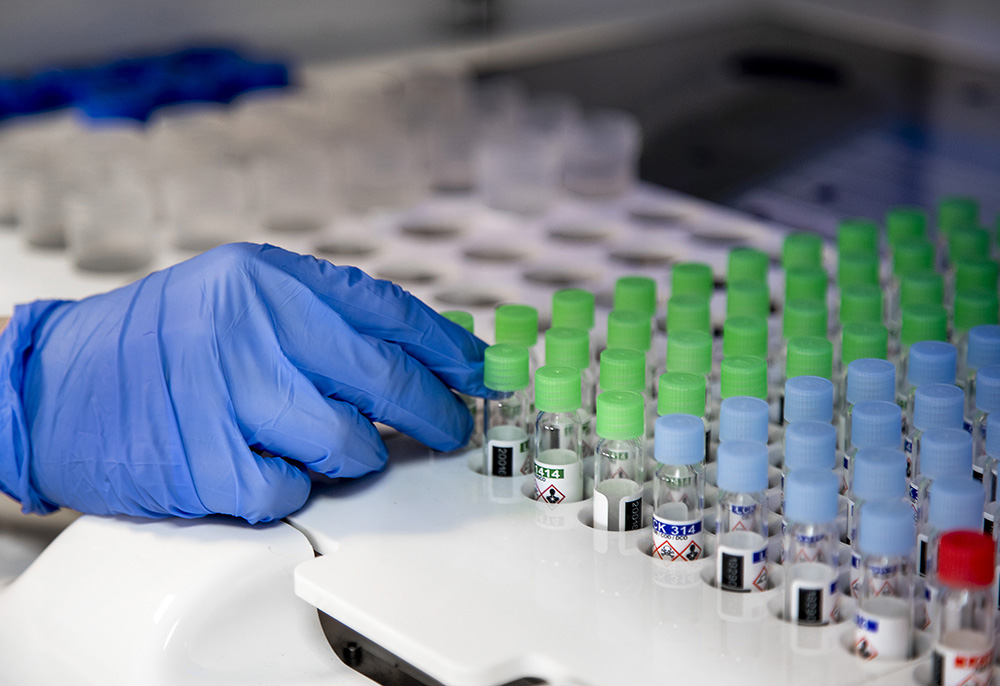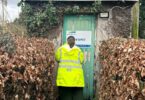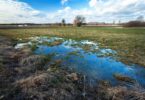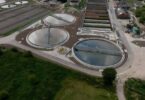On New Year’s Eve 2019, the World Health Organisation (WHO) was alerted to rising cases of an unknown respiratory illness in Wuhan City, China – what we now know as COVID-19 (SARS-CoV-2).
On 11 March 2020, a rapid increase in the number of COVID-19 cases led the WHO to declare a global pandemic.
Almost two years later, and countries across the globe are still grappling with a virus that has infected over 250 million people and caused over five million fatalities.
Governments across the globe are under increasing pressure to ‘flatten the curve’. Central to these efforts is implementing ways to detect cases and variants and manage their spread.
One method showing promise, and significant support from the scientific community, is wastewater testing.
An early warning system
Tracking of RNA material from the SARS-CoV-2 virus in wastewater has been proposed, and already implemented, as an early warning system to help combat COVID-19.
According to the World Health Organisation (WHO), studies in several countries, including in the Netherlands and United States, have found a correlation between SARS-CoV-2 RNA levels in wastewater and COVID-19 clinical case reports.
What’s more, researchers in France and the US have shown that RNA concentrations in wastewater can provide a 4 to 7-day advanced notice ahead of COVID-19 confirmed case data.
As a result, some countries are exploring plans to incorporate sewage surveillance into their national COVID-19 response.
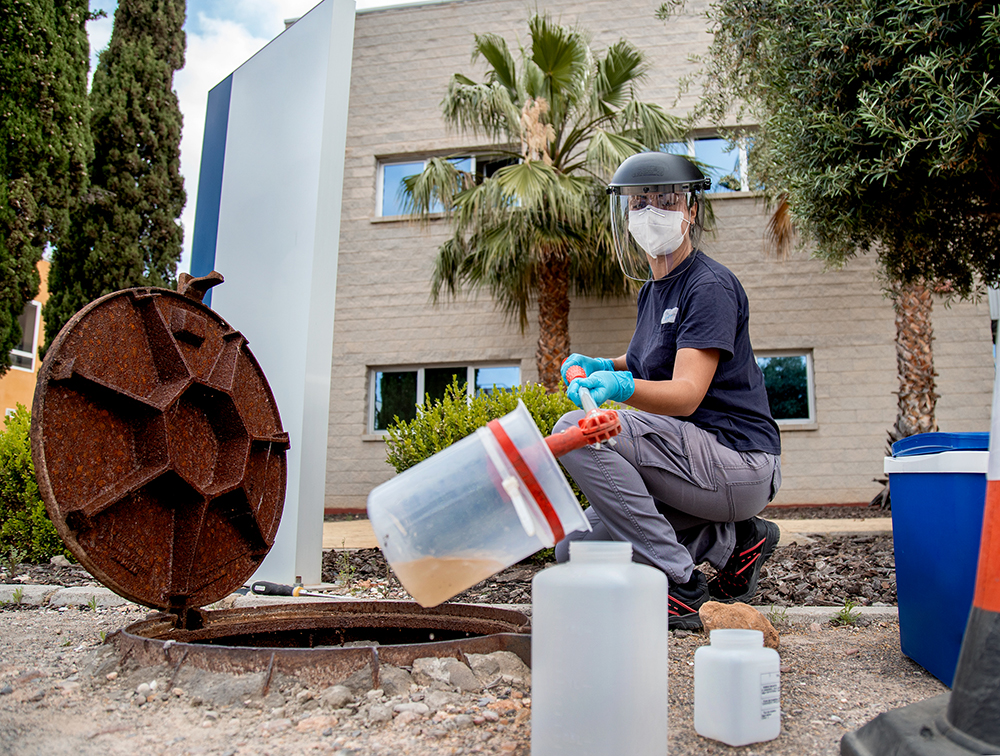
An employee at Spanish water utility, Global Omnium, collects wastewater for COVID-19 sampling.
Unlike individual tests, sewage testing can estimate the case rate, numbers, and distribution for an entire municipality.
There is even research to suggest that sewage testing can improve the monitoring of new variant outbreaks.
Tracking new variants
Nine notable variants of SARS-CoV-2 have been found since September 2020.
There are thousands of different types of COVID-19 circulating across the world, which makes sense because viruses mutate all the time.
But some variants are of particular concern due to their increased transmissibility and infectivity, disease severity, and potential resistance to vaccines and treatments.
The most recent variant, called B.1.1.529 or Omicron, is being analysed by experts to see how greatly it differs from the original COVID-19 strain – which current vaccines were designed to fight.
The identification of Omicron has sent shockwaves around the world as leaders scramble once again to close borders and reintroduce measures aimed at slowing the spread of the virus.
Tracking these variants and their abundance in the sewershed could provide an early warning system to help authorities to improve their situational awareness.
According to the International Water Association (IWA), identifying the emergence of variants of concern and tracking their presence spatially and over time provides vital information to governing and medical authorities to support the establishment of targeted preventative interventions.
While most of the work to detect new variants in wastewater has been confined to research studies, using wastewater to show concentrations of COVID-19 in a population is becoming well established.
But this form of monitoring requires frequent sampling which can be expensive and logistically challenging.
However, there is one company that has adopted a smart water approach to streamline the process.
Real-time COVID-19 monitoring
Shortly after the pandemic began, smart water solutions provider, Idrica, launched their COVID-19 early warning system – GoAigua SARS Analytics.
This solution shows the concentration of the virus in wastewater by integrating sampling, analysis, laboratory results, and real-time monitoring of key indicators into a single management point.
This provides regulators and public health officials with a new and effective tool to establish social distancing guidelines or anticipate future spikes in hospitalisation.
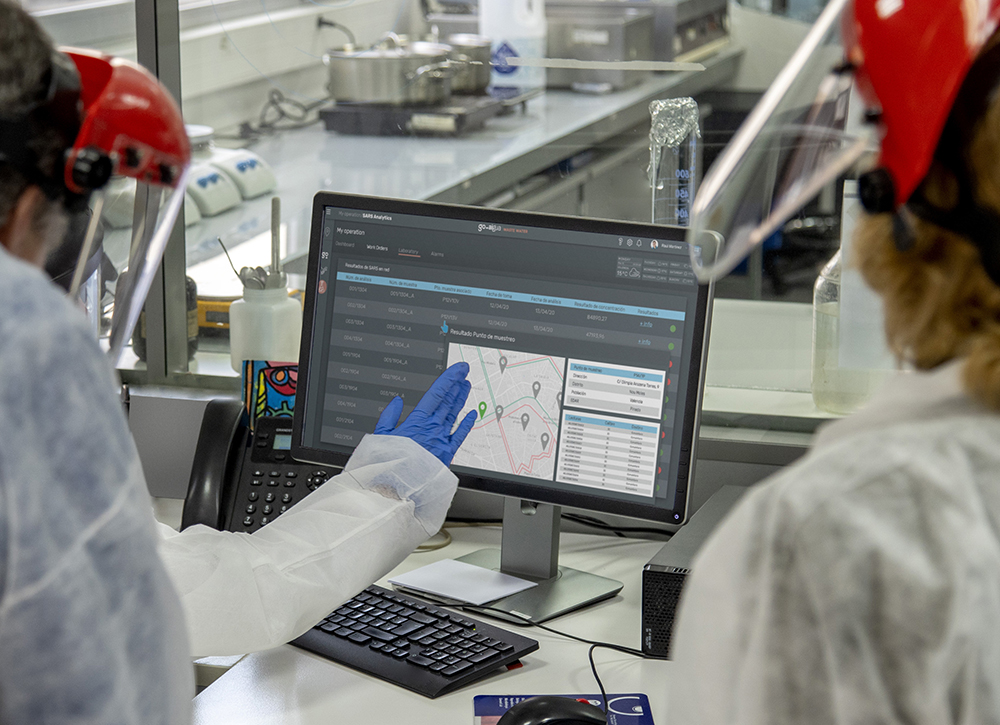
GoAigua SARS Analytics gives decision-makers a real-time view of COVID-19 incidences within the population
The solution was first implemented in Valencia, Spain, in May 2020, as a collaboration between the regional government, the Spanish public research centre CSIC, and the water utility Global Omnium.
It enables the city to anticipate coronavirus outbreaks and have a real-time view of their incidence among the population.
Since implementation, Valencia has been able detect levels of COVID-19, even among asymptomatic cases, days before the results of PCR tests become available.
This month, the City Council declared a ‘sixth wave’ based upon the latest wastewater testing results which showed that cases had doubled in just two weeks.
According to the data, 61 million genetic units of the virus were detected per liter of water, an incidence rate not seen since August of last year.
GoAigua SARS Analytics has also helped authorities determine the neighborhoods with the highest cases, as well as the concentration of variants. Results have showed a high presence of the Delta strain.
As a result of their efforts in Valencia and beyond, Water Europe awarded Idrica the Water Technology & Infrastructure Award last year. This award recognised GoAigua SARS Analytics as the best solution for the early detection of COVID-19 in wastewater.
Just last month, Idrica was also nominated for the prestigious Aquatech Innovation Award 2021.
To date, GoAigua SARS Analytics is in operation in over 20 cities – the largest wastewater-based epidemiology program in the world.
Do you have an article or video that you would like to share? Submit your article here or keep up with the latest news from the water industry and wastewater industry by subscribing to our weekly newsletter.



